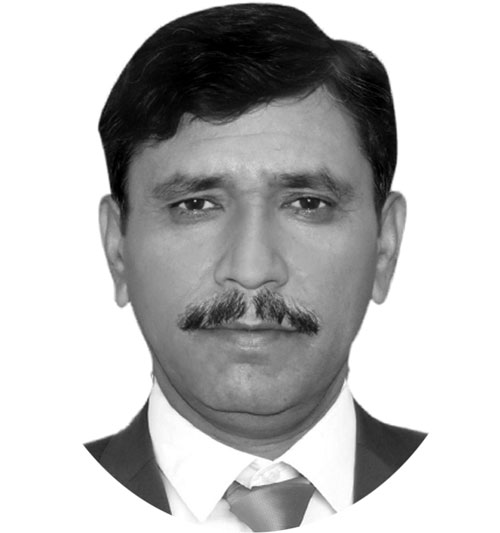Justice to ensure national cohesion
PROVINCES duly insist on their due share in the federal divisible pool but lack arrangement to transfer funds down to the districts.
If liberal intellectuals consider Socrates to be an opponent of democracy, it is not their fault.
The greatest attack of its kind in modern times has been made by Karl Popper, who in his famous book “Free Society and Its Enemies” has called him the leader of undemocratic thinking.
It is a fact that Socrates considered democracy a threat to Athens’ independence. The reason was that the business class had a monopoly on state affairs and was pursuing its lustfully pursing its interests in the guise of democracy.
Society was in the race to accumulate wealth and matter of justice had fallen into the hands of the flamboyant speakers who were determining the oppressor and the oppressed by the force of their magic statement.
It is not that Socrates did not understand the financial needs of the state or did not believe in the importance of trade, but he insisted that trade should be subject to social needs and that it was necessary to keep capitalists out of state affairs.
The great thinker feared that profit-seeking rulers would make wealth and money the standard of honour and dignity not justice, which he thought was necessary to create harmony and balance in the society. Socrates believed that over-reliance on trade would one day lead the state to war.
He did not doubt the patriotism of the Athenians, but rather had reservations about the natural weaknesses of the business class, which, if given free rein, would compromise on justice and, thus, tear apart national unity.
Socrates was tried on charges of believing in new gods and misleading the youth. He made it clear in his defence that he was being avenged by the affluent class, but the jury sentenced the 70-year-old man to drink cup of poison hemlock through a “modest majority”.
His well-wishers arranged for his escape, but he said his death would mark his victory over his opponents. That really did. Human societies need each other to meet the necessities of life and trade is indispensable.
In this regard, it is necessary and important for the state to maintain law and order so that the production and movement of commercial goods is not hindered. In return for these services, it levies taxes on trade and business.
In known history, there has never been a difference of opinion about the need and importance of the state.
There is also a consensus that the survival of the state depends on its ability to create harmony and balance in society, which is disturbed by the relentless exploitation of the skilled class and productive resources.
It is in this balance that decided which form of government a country will have. Monarchy or democracy, the question has been debated since ancient times.
We have a democracy that takes pride in making every budget business friendly! Failure to collect taxes from the affluent class, and the imposition of taxes on essential commodities (electricity, diesel, petrol, ghee and pulses), cuts in health and education budgets and reluctance to form local governments have become well-established norms, even after democracy has been firmly established in the dear land.
Whether it is the National Assembly or Senate, elections are quieted an expensive business.
The members of Parliament elected through such an expensive electoral process are more interested in personal gains rather than undertaking legislation to the benefit of the electorate.
Quite understandably, the benefits of democracy remain confined to few hundred families that make hardly 1% of the country’s populace.
It is no more a secret that the general elections are held frequently and on time but every possible obstacle is put in the way of the formation of local governments.
Provinces duly insist on their due share in the federal divisible pool but lack arrangement to transfer funds down to the districts.
The kind of democracy that we have only ensures the rule of dynasts and the marginalization of the poor and the downtrodden to the point of slavery.
If democracy had succeeded amid the imperialist era, the last seventy years would have been enough to make this experiment a success.
Democracy has been successful in neighbouring India and the country has been on the path of development because it did the first thing to end the feudal system.
Bangladesh is taking democracy and economic development along successfully for it has excluded religious parties from the electoral process. Times have changed and we are the ones who can’t take our eyes off the sky.
Recently, the incumbent government has assured the IMF of revenue growth of Rs 1.272 trillion (2. 8 per cent of GDP) in the coming budget, jacking up of the electricity tariff by Rs 4.97 per unit and continue charging petroleum products by Rs 30 per litter in the remaining months of the fiscal year.
The bank has asked the federation and the provinces should work together to bring necessary reforms to meet the revenue target while the government has assured it that legislation on the sovereignty of the Stat Bank will be passed by Parliament in a “timely manner”!
— The writer is contributing columnist, based in Islamabad.










